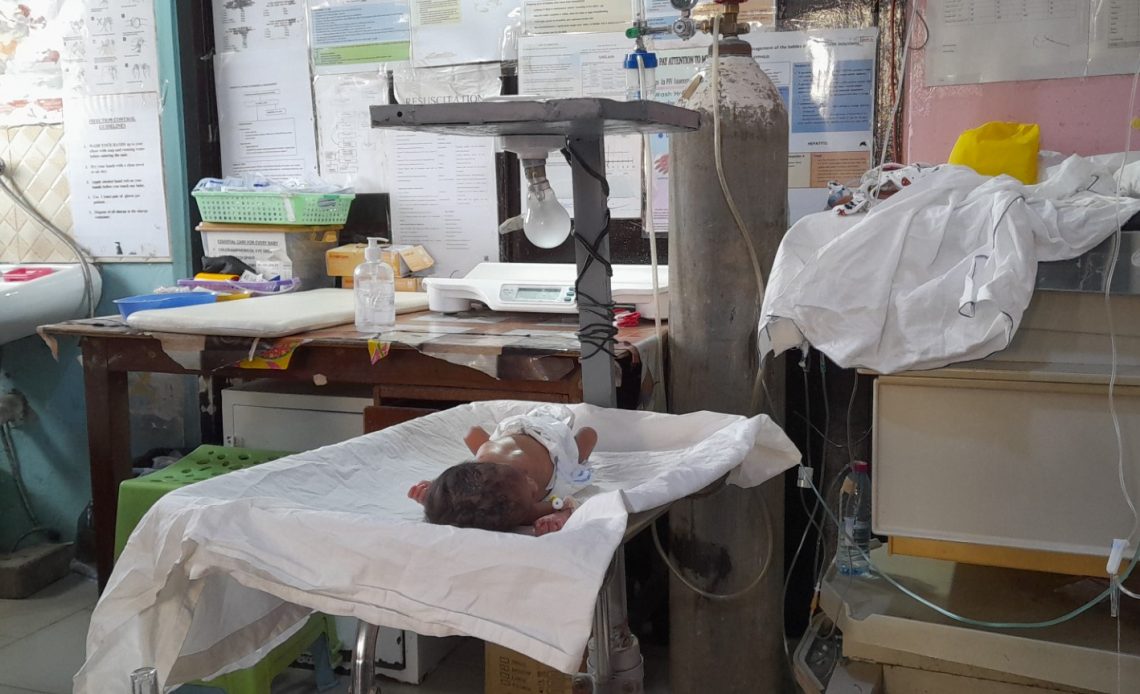Mahmud Mohammed-Nurudeen (Lead Writer)
Aisha Bawa, a 34-year-old midwife at the Manhyia Government Hospital in Ghana, tries to ensure safe deliveries in her facility. Aisha has worked in the Ghana Health Service for nine years, where she has been committed to minimising maternal deaths while providing emotional support to grieving mothers.
“Saving a baby and the mother feels like securing a ticket to heaven for me,” Aisha said.
Over the years, Ghana has seen a decline in its maternal mortality ratio (MMR) from 760 per 100,000 live births in 1990 to 319 per 100,000 live births in 2015 and 263 per 100,000 live births in 2020. Despite this progress, the reduction has been gradual, and Ghana has fallen short of the SDG 3.1 target to reduce global maternal mortality ratio to less than 70 per 100,000 live births by 2030.

However, according to the Lives Saved Tool modelling study, increasing coverage of midwife-delivered interventions could prevent 41% of maternal deaths, 39% of neonatal deaths, and 26% of stillbirths, potentially averting 2.2 million deaths annually by 2035.
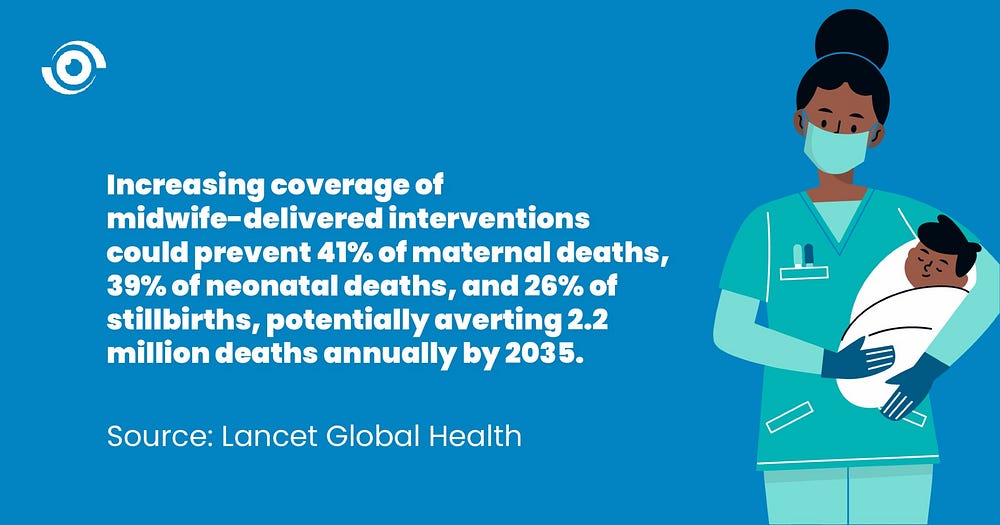
Transport trolleys for babies
According to the World Health Organisation (WHO), children who die within the first 28 days of birth suffer from conditions and diseases associated with a lack of quality care during or immediately after birth, as well as in the first days of life. To address the high neonatal death rate at Manhyia Hospital, Aisha implemented the use of ‘transport trolleys for babies’ designed for swift transportation and ventilation of infants experiencing asphyxia. Aisha collaborated with a skilled artisan to craft this equipment for the hospital. The trolley, costing GHC1,250 (approx. $104), includes warmers and portable oxygen, crucial materials for the well-being of asphyxiated newborns.
Historically, the Manhyia Hospital experienced high levels of neonatal mortality rates before the introduction of the ‘transport trolleys for babies’. The baby trolley was introduced in the last quarter of 2021, significantly reducing perinatal deaths at the district hospital. The neonatal mortality rate decreased from 2.7% in September among 324 deliveries, followed by 1.7% in 336 deliveries in October, to 0.6% in November in 2021, with the neonatal transport team playing a crucial role in ensuring optimal care for newborns.
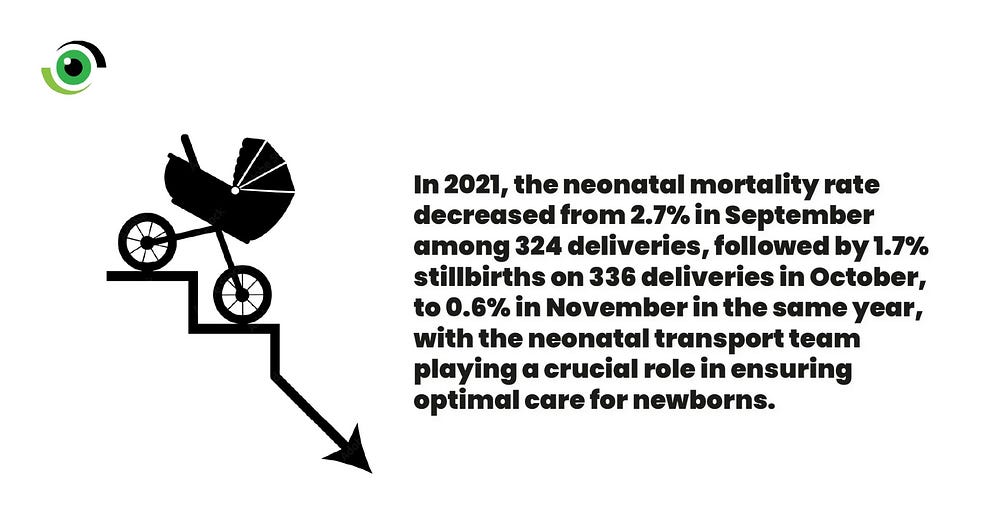
This is a huge difference from the 3.7% of 374 in September, 2% of 403 in October, and 3.1% of 357 in November of 2019. In the same period of 2020, there was a reduction in neonatal mortality, which was potentially influenced by the surge in the COVID-19 outbreak. Notably, August witnessed 1.5% neonatal mortality rate among 329 total deliveries, followed by 1.5% of 262 in September, 1.4% of 368 in October, and 1.5% stillbirths out of 333 total deliveries in November.
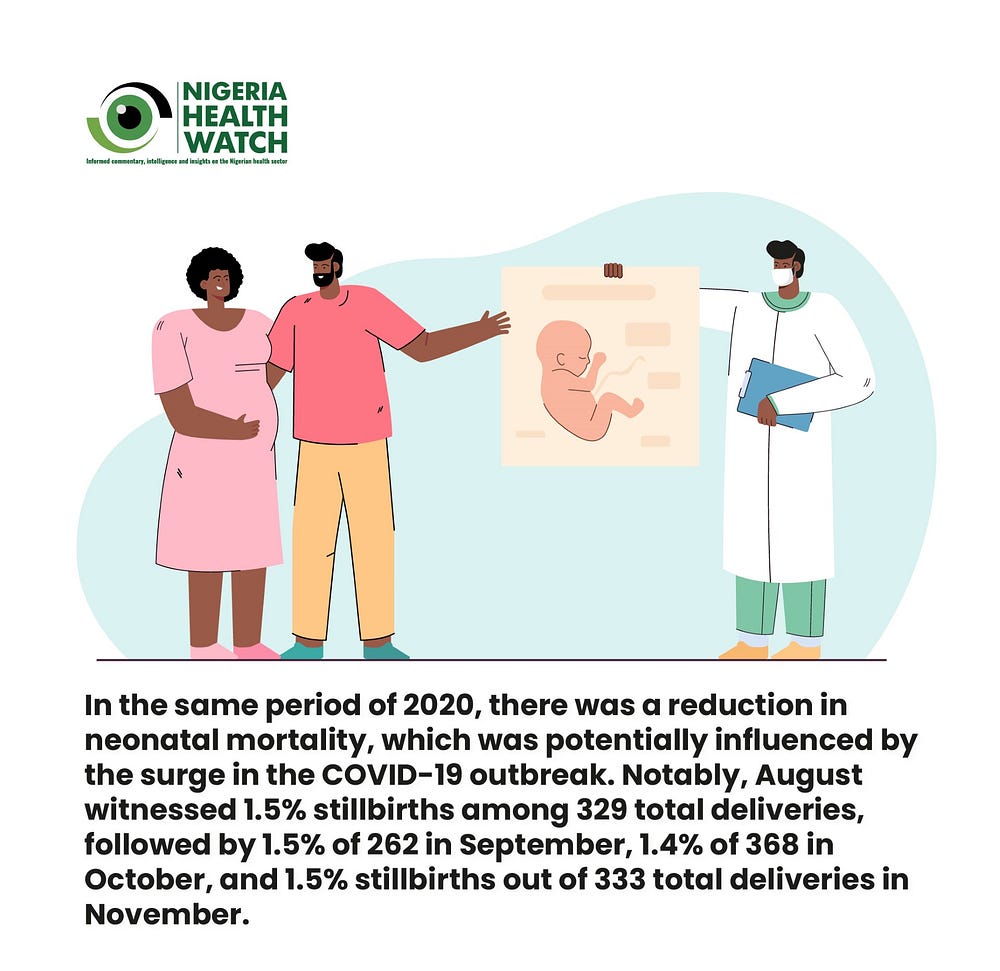
Colour coded risk identifier
Newborns can often become severely ill without any prior indicators, posing a challenge for medical teams. Aisha collaborated with Obstetrician Gynaecologist Dr. Opei Adarkwa in 2019 to redesign the Maternal and Obstetric Early Warning Chart (MOEWS) for Manhyia Hospital. They replicated the same efforts for several facilities in the Ashanti region, including the Kumasi South Hospital, Nkawie Hospital, Suntreso Government Hospital, and Nkenkenso Hospital, aiming to enhance the early identification of danger signs and complications in maternity units.
The midwives not only identify at-risk patients, but also utilise the color-coded MOEWS chart to monitor post-caesarean section cases, enabling swift intervention by promptly detecting danger signs. This tool, aiding interns and staff in interpreting neonatal outcomes, contributes to early diagnosis and treatment, reducing morbidity and mortality. Concurrently, Aisha and her team adapted the original newborn examination form from the “Making Every Baby Count Initiative” (MEBCI) into a colour-coded format in 2019, significantly enhancing the efficiency of risk identification during newborn examinations.
Improving maternal health through awareness and training
In November 2020, Aisha commenced TV and radio programmes on channels like Zuria FM, Garden City Radio, Otec FM, and Kessben TV, focusing on preventive care to curb maternal and neonatal mortality. This awareness drive has recorded significant impact, with many individuals, especially pregnant women like 36-year-old Nimatu Abdulai, noting that the programmes enlightened them on crucial issues.
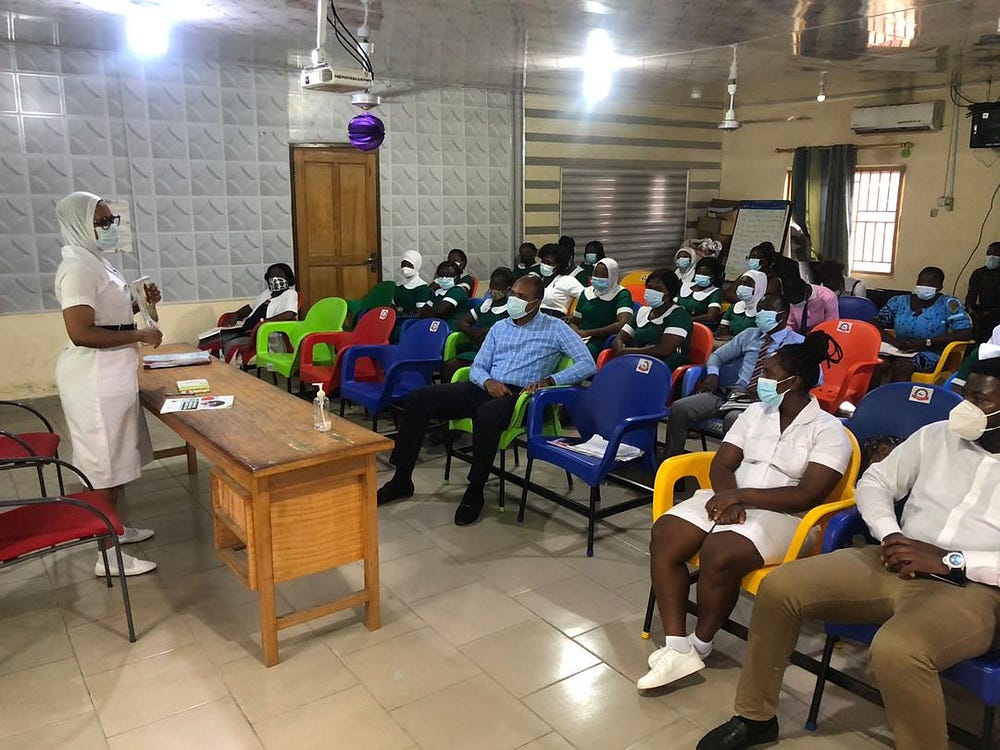
For nearly seven years, Nimatu, a longtime listener of the radio programme, faced challenges with her first child, including frequent diarrhoea and constant crying. Aisha’s guidance on exclusive breastfeeding helped Nimatu to realise that these issues stemmed from not exclusively breastfeeding her child.
As a regional newborn care facilitator, Aisha also trained healthcare professionals, including midwives, nurses, doctors, and anaesthetists, on newborn resuscitation and essential care.
“I have learned how to assist a newborn baby with severe asphyxia to breathe within a minute,” shared Odette Anaba, Deputy Director of Nursing Services at the Afrancho Polyclinic. Mrs Anaba received training on treating newborns and participated in resuscitation and essential care training three times. She also shared that her knowledge has contributed to a decrease in the neonatal mortality rate at Afrancho Polyclinic, with no recorded deaths in 2021, compared to five in 2020 and six in 2019.
Inspiring a chain of positive change
Following the training from Aisha, a senior nursing staff, Miss Bimpong applied her knowledge at the St Martin Catholic Hospital’s neonatal intensive care unit. She further trained around 40 new employees and rotational midwives, significantly, reducing cases of asphyxia and perinatal deaths in the hospital from 20 in 2019 to 10 in 2021.
Catherine Nsiah and Cecilia Tsikwa, both recipients of Miss Bimpong’s training, expressed the positive impact on their practice. According to Mrs Nsiah, the training influenced her to transition from nursing to midwifery, emphasising the importance of prioritising immediate neonatal care after delivery. “I wanted to give the best care to improve maternal and neonatal care at my hospital,” she explained.
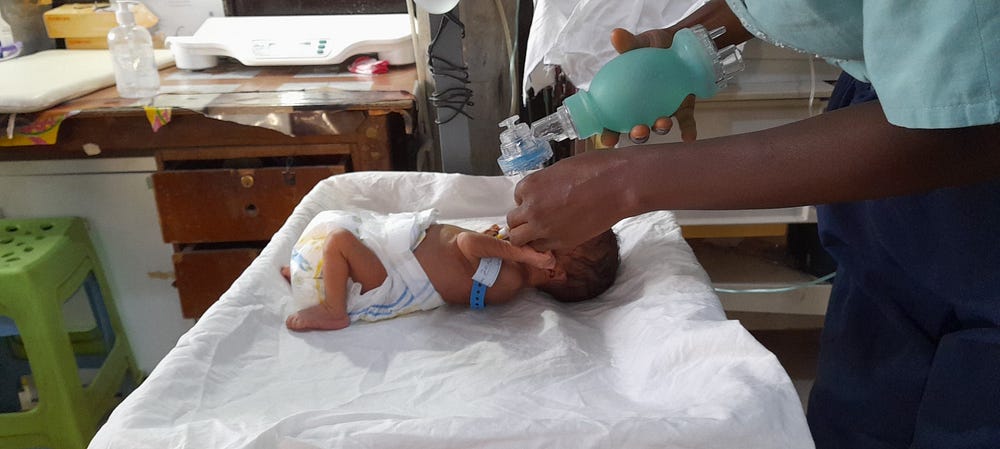
The term “golden minutes” underscores the critical first minute after birth, during which a midwife must apply appropriate techniques to ensure the baby is breathing. Tsikwa attributes her proficiency in these crucial moments to the training provided by Miss Bimpong. She shared a success story, recounting how she saved a baby from severe birth asphyxia in October this year, employing techniques she learned under the guidance of Miss Bimpong.
Aisha’s training enhanced newborn survival rates and bolstered clinic capacity by equipping staff with skills to minimise patient referrals due to insufficient human resources. Kenneth Eredoglo, a nurse anaesthetist at Manhyia Hospital, acquired crucial skills such as newborn resuscitation, kangaroo mother care and neonatal jaundice management. He revealed that their facility no longer conducts newborn referrals.
Reward for hard work
Aisha’s outstanding dedication and innovative contributions as a midwife led her to receive the prestigious 2021 National Best Midwife/Nurse Award from the Ghana Registered Nurses and Midwives Association. Aisha emphasised the importance of practical implementation over acquiring certificates and stressed that true impact comes from translating theoretical knowledge into tangible solutions.
Aisha mentioned her commitment to innovation and problem-solving. She shared, “I strategically plan solutions by combining my ideas with insights from prenatal audits, incorporating recommendations. I collaborate with my team to implement these solutions effectively.”
However, just like many individual-led interventions, the unavailability of funding is Aisha’s major limitation. Since introducing the transport trolley and receiving the 2021 national best nurse/midwife award, significant effort has been made to secure funds for replicating this initiative across various facilities, especially in the Ashanti region. Unfortunately, attempts to obtain international grants, including those from the Children’s Prize Award, have been unsuccessful.

Midwives can help to reduce maternal and neonatal mortality and stillbirths in LMICs substantially. According to the study, even a modest increase in coverage of midwife-delivered interventions could avert 22% of maternal deaths, 23% of neonatal deaths, and 14% of stillbirths, equating to 1·3 million deaths averted per year by 2035. However, for Ghana and other countries to achieve this potential, adequate investment should be made to increase coverage of similar midwife-delivered interventions.


